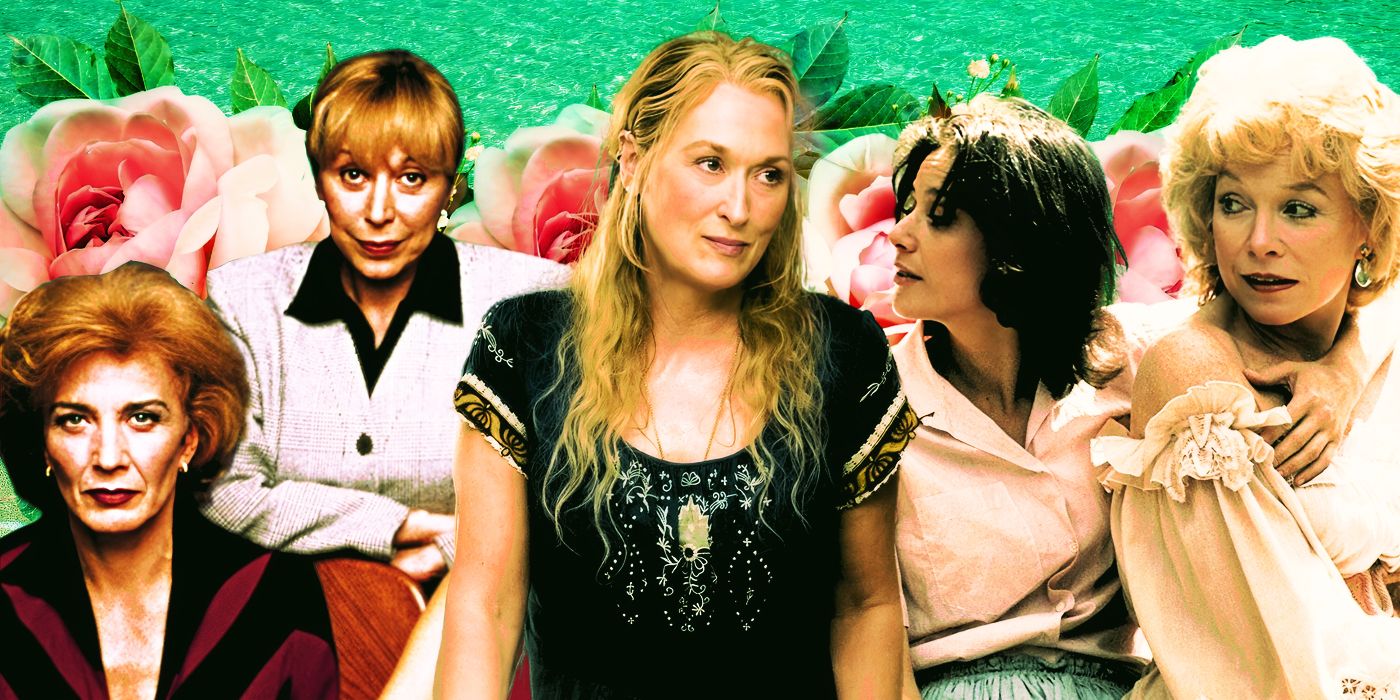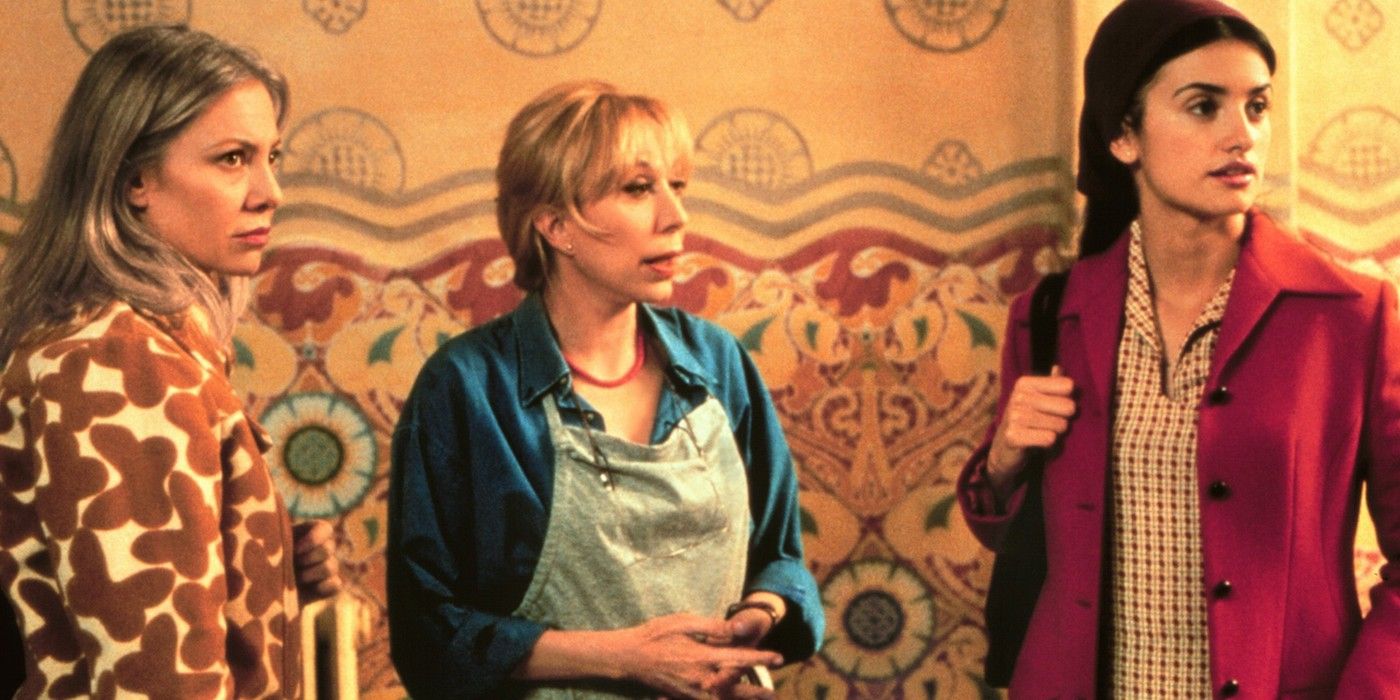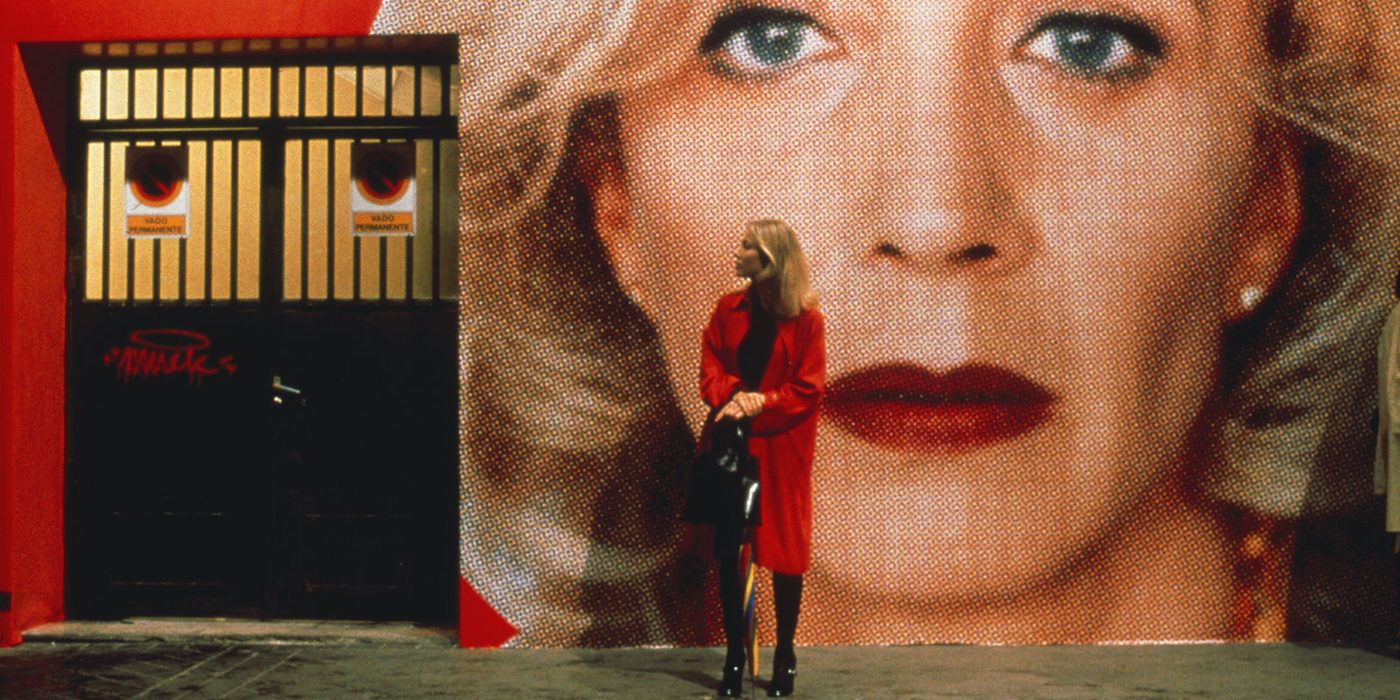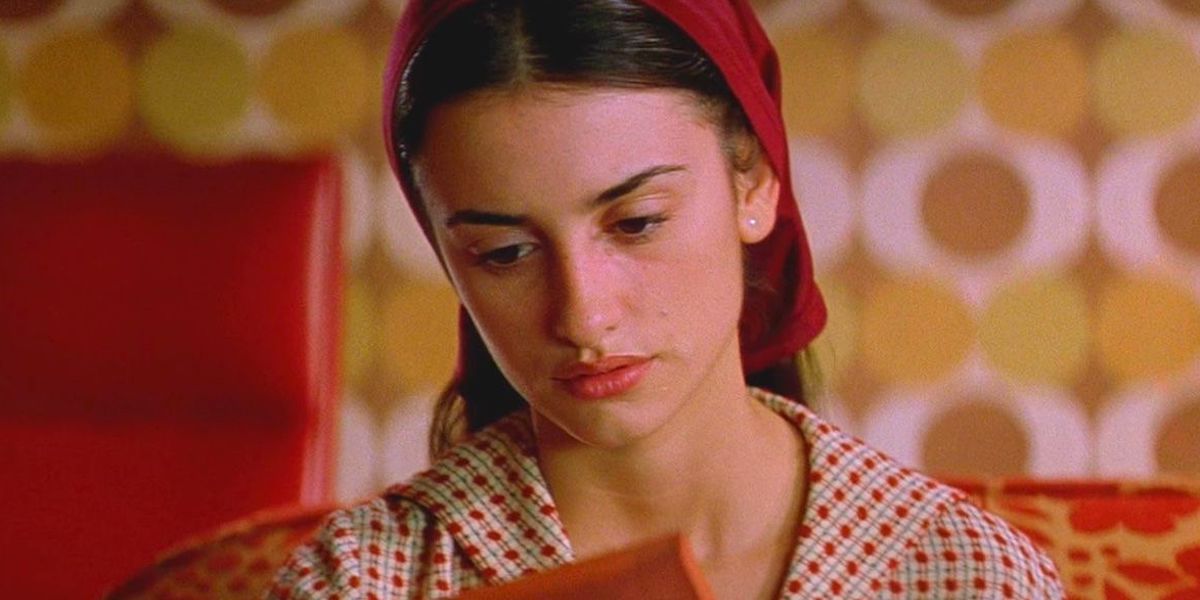The list of the best movies to watch on Mother’s Day is not at all short. Two possible contenders are on opposite ends of the joyful-tearjerker scale. Mamma Mia! splashes into the magnificent blue of the Aegean Sea while playing off hits to ABBA as a mother is in the dark about what her engaged daughter is planning. Terms of Endearment follows the chaotic, though loving, relationship between a mother and daughter until a devastating health diagnosis upends everything. Then there’s an Oscar-winning movie that brings the grief that hits hard in the last half of Terms of Endearment and the mystery element of Mamma Mia! over a father’s identity. All About My Mother stands apart by redefining traditional family and motherhood, ending up as unconventional as its leading ladies.
‘All About My Mother’ Is a Tragicomedy, Melodrama Spectacle
Many movies are said to be better when knowing little about them. Directed by Pedro Almodóvar, Todo sobre mi madre or All About My Mother is best watched with all the surprises kept hushed. With that said, some spoilers will be told. All About My Mother opens with a doomed celebration. Esteban (Eloy Azorín), is turning seventeen, the only son of Manuela (Cecilia Roth), and the duo prepare for the birthday evening. A sudden tragedy leaves Esteban dead, propelling the grieving mother to search for the father she kept hidden from her late child. She leaves Madrid for Barcelona, the city she swore she would never return to. Old friends and new ones enter Manuela’s orbit as she attempts to heal by confronting her past no matter how painful.
The relationship between Manuela and Esteban is distinctly odd. Manuela pesters him to eat his dinner, to fill up just in case he may have to “work the streets” to provide for her. Esteban adds to it, wondering if his mother truly loves him, should the need ever arise, would she do sex work to help him with his financial needs. Manuela isn’t stunned or offended, she goes quiet before saying, “I've already done just about everything for you.” Her past is a secret, to the audience and her son, a heavy burden she has given herself. In the final hours they share, Esteban tells her, “Someday, you’ll have to tell me all about my father.” This missing, mysterious parent is a big question, but there is a reason why this isn’t titled All About My Father.
Manuela is the central mother figure the title lovingly revolves around, and although she loses her son, she becomes another kind of mother to a group of women who need it. There is a great loneliness in in-movie actress Huma Rojo (Marisa Paredes), who gradually eases the method acting she displays off-stage. There is the outsider otherness to trans prostitute Agrado (Antonia San Juan), who prides herself on living with authenticity, rejecting those who try to fetishize her. Then there is Sister Rosa (Penélope Cruz), lonely and an outsider as a pregnant, HIV-positive nun. Cecilia Roth’s performance as Manuela holds everything together, as an unapologetic liar, and above all, firmly loyal to loved ones. There is a single tattoo on the back of her neck, seemingly from the past she wished to forget. Like the placement of the tattoo, she must look back if she wishes to move forward.
Pedro Almodóvar's 'All About My Mother' Is a Visual Feast
For those who haven’t seen an Almodóvar film, his trademark is turning mise-en-scène into a visual feast. The set design is ornate with nearly all space on a wall or table filled up. Red, blue, yellow, and green are bold colors in a character’s wardrobe to the locations they occupy. In one of many grand visuals, a gorgeous poster of Huma’s face is plastered on the outside entrance to the theatre, which Manuela stands under, looking small against the giant face. Role-playing in All About My Mother blurs the line between life and art. Huma Rojo stars in an adaptation of A Streetcar Named Desire by Tennessee Williams, an adaptation Manuela is destined to always be connected to. This movie isn't a case of "style over substance." Sudden moments when Manuela remembers her son, she barely holds in a deep sob, throwing her hands up to cover her face. That she carries this loss through the whole movie, is one part in how it grounds itself when everything gets too theatrical. The soundtrack does its part too.
“Tajabone” by Ismaël Lô finds the melancholy to nostalgia, as Manuela begins her journey. In the scene, Cecilia Roth’s haggard face says enough for the sadness inside her, sitting in a train that speeds faster than Manuela may wish for it to go. “Tajabone” plays before the “light at the end of the tunnel” can be reached, the scene cutting to a sweeping shot of Barcelona at night. A score by Alberto Iglesias and Dino Saluzzi brings a Latin flair, ensuring that no matter how much influence the director takes from Hollywood, the movie belongs to Spanish cinema. “Gorrión” and “Dedicatoria” are two scores that charge the scenes, creating a soundscape to describe the feelings of an uncertain, but necessary journey. On this new path, Manuela isn’t lost for too long.
Due to the fantastical women she surrounds herself with, the movie implicitly wonders how Esteban might have fit in with this group of eccentrics. His absence lingers, as it rightfully should, or it loses the emotional core. It’s mentioned how much Esteban loves to write, that he wants to write something for his mother to act. Through his sudden passing, he does just that, crafting a role only Manuela can play in finding closure per her son’s last wish. Manuela’s grief never goes away, the movie knows it cannot, yet it heals over time in how she cares for others and how she is cared for. All About My Mother, in major ways, challenges two other contenders for what should be played on Mother’s Day.
‘All About My Mother’ Is Unabashedly Queer
In Terms of Endearment, Aurora (Shirley MacLaine) and Emma (Debra Winger), are the mother-daughter duo who spend more screen time with their male co-stars, even if their relationship is the most memorable. The death of Emma leaves Aurora as a mother once again, this time to Emma’s children, but this isn’t a found family, since they are all related. Lovers are on the mind in All About My Mother, but the bond between the central women is what the movie is interested in. By placing Esteban’s death in the first act, it leads Manuela to form a found family of women from different backgrounds, ages, and with different needs. In Mamma Mia!, Sophie (Amanda Seyfried) finds her mother’s secret diary, using it as a map to find out who her father is. By the end, Sophie ends up with three, one of which chooses to finally come out. All About My Mother sets up the elusive father figure — an old photo Manuela shows Esteban of her younger self has edges torn, hiding who else might be pictured — although the titular mother never loses the spotlight.
Unlike the small moment in Mamma Mia!, All About My Mother is unabashedly queer. Trans women proudly do sex work in a secluded part of the city, there’s Huma Rojo, an older theater diva who struggles with a younger girlfriend’s drug addiction, and there is Rosa’s storyline involving HIV. The movie’s melodrama aesthetics, along with classic Hollywood references, brings levity to plot points that could make everything very dark. Manuela, at first hesitantly, takes in Sister Rosa as a surrogate daughter whose own mother is conservative with all the judgment her daughter lacks. Rosa’s HIV storyline isn’t as sensational as it could be for a ‘90s movie, ending with a sign of hope, but this is all per usual for Pedro Almodóvar, an openly gay man whose movies frequently include LGBTQ characters and themes.
Agrado, although a trans woman played by a cisgender actress, is still a unique character in how the movie treats her. She gets a whole audience to herself at one point, describing the parts of her body she has added on, fixed up, or altered because “It costs a lot to be authentic. And one can’t be stingy in these things because you are more authentic the more you resemble what you've dreamed of being.” Women are truly at the forefront, leaving men nearly nonexistent. Esteban’s reckless actions lead to his demise and Rosa’s ailing father only speaks by asking a stranger’s age and height. As for Esteban’s absent father, she has transitioned to Lola (Toni Cantó), living a carefree life that when she does appear, admits to Manuela, “I was always excessive and now I am very tired.” Lola might have caused pain, to Manuela and others, but she isn’t made out to be a villain.
An underlying layer to All About My Mother and how much it celebrates goes back to the 1975 death of dictator Francisco Franco. It ended Spain’s four-decade-long regime, opening the doors to freedoms the youth hadn’t experienced. Almodóvar was part of a countercultural movement known as La Movida Madrileña that happened during the 1980s, a release of excess energy in the arts, from music to the movies. He made his movies to fight back in defiance of the repression from the dictatorship, and when he made his 1999 ode to motherhood and women, he had a great handle on his greatest skills as a filmmaker. Social context aside, the personal context brings everything home, literally.
Pedro Almodóvar’s Childhood Made Him the Director He Is
In the short featurette, Behind the Story - The Story of Cult Films: All About My Mother, the director adored his mother, Francisca Caballero. She was the kind of person to read letters to illiterate neighbors, adding what she believed should have been written for a warmer reaction from her listener. Along with her, there were the women he grew up around, these early memories turning into cinematic concepts, or as the documentary states, “The peasant women who populated and nourished his childhood, have become city women emancipating themselves in the new democratic Spain.” There’s an intimate peek between mother and son through arrival footage where Almodóvar reads a passage from Truman Capote’s Music for Chameleons, “When God gives us a gift, he accompanies it with a whip intended only for self-flagellation.” His mother listens intently. For a different reaction, an early scene in All About My Mother has Manuela read out from the same book. Upon hearing those words, she flinches, while her son cherishes it. Manuela is inspired by the director’s mother, but there can only be one Francisca Caballero.
Before All About My Mother was released, Almodóvar’s mother passed away, cementing this 1999 movie as a special one in his career beyond the awards recognition, from Best Director at the Cannes Film Festival to Best Foreign Language at the Oscars. It doesn’t ignore the darkness of the story, and what helps it avoid being too raw is the leading performances and high style which finds truth in Shakespeare’s famous line, “All the world’s a stage.” Everything is vibrant and beautiful, despite the various poignant storylines. The movie is dedicated, “to all actresses who have played actresses, to all women who act, to all men who act and become women, to all the people who want to be mothers. To my mother.” That last dedication is the beating heart of All About My Mother, an unconventional, sincere feature presentation for Mother's Day.




